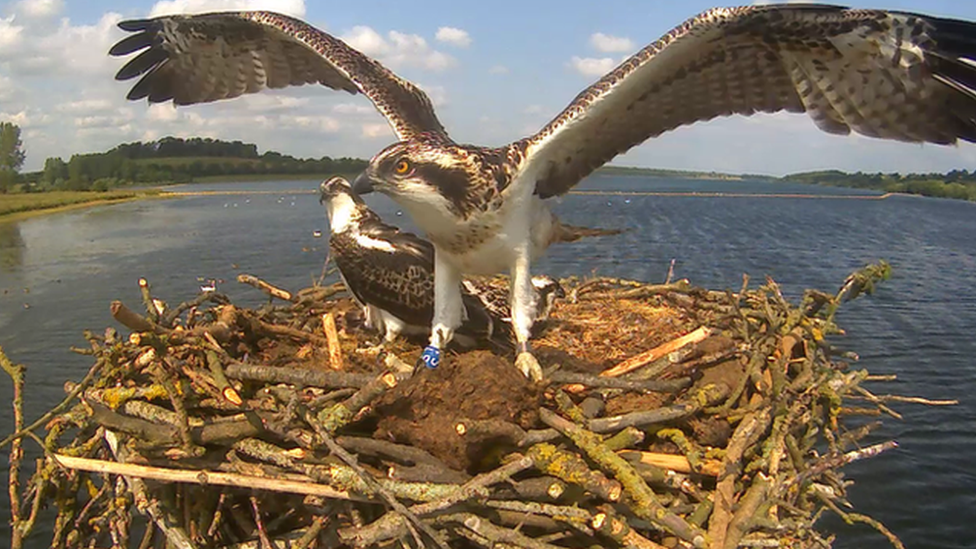Rutland osprey project grows online audience in lockdown
- Published
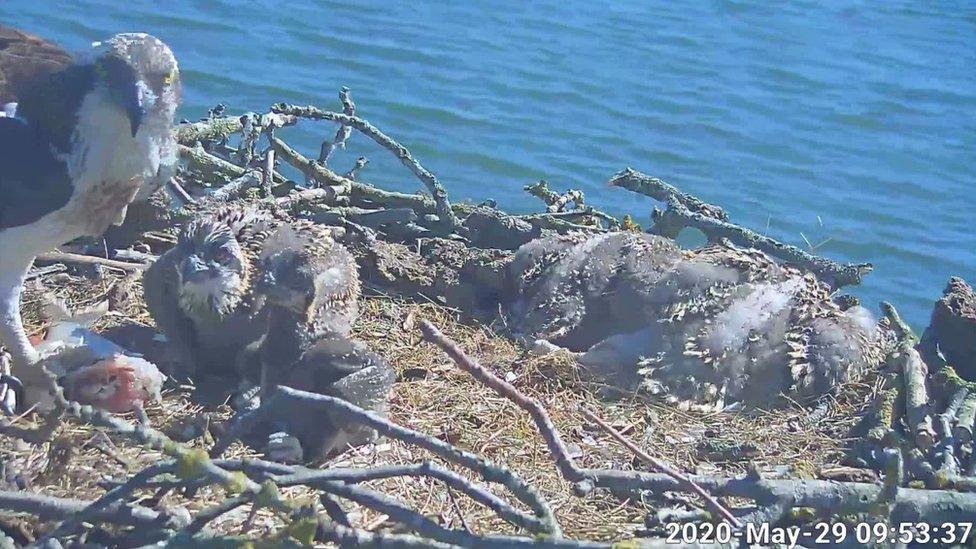
Osprey chicks are fed on fish caught by their parents
Bird watchers have turned their eyes from the skies to the web as the coronavirus outbreak forces more people to watch rare birds online.
Rutland Water Nature Reserve closed in March to limit the spread of the disease, meaning visitors could not observe wildlife from hides.
The Rutland Osprey Project said it had led to greater engagement and connection with people online.
Rutland was the first place in England where ospreys bred in 150 years.
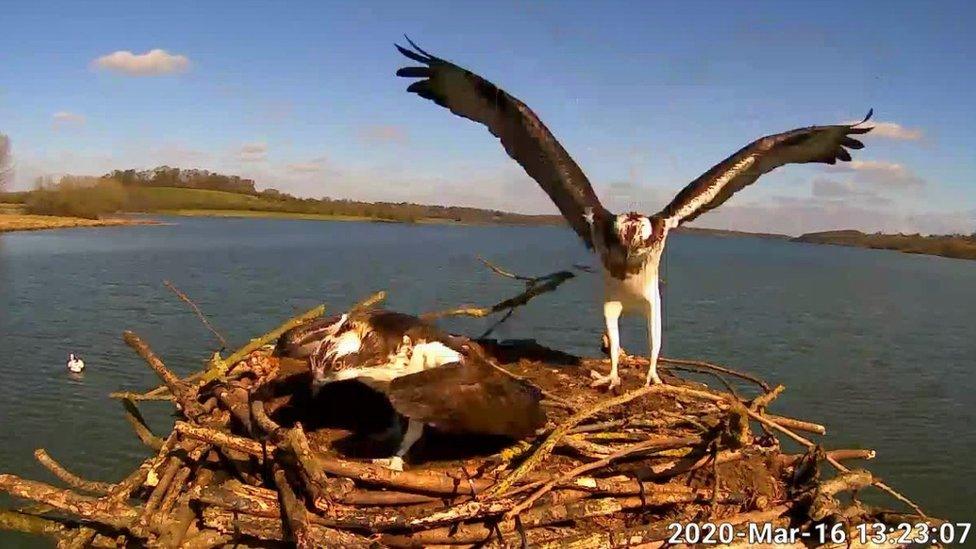
Maya and 33(11) return from Africa
The project, run by Leicestershire and Rutland Wildlife Trust, observes the "extremely rare" birds from their arrival in spring through to their autumn migration back to Africa.
Visitors can usually observe the fish-eating birds throughout the summer from hides at Manton Bay, across from where the pair Maya and 33(11) have been nesting since 2015.
They both arrived in Rutland on 16 March from Africa, with 23 other ospreys also returning, but days later the reserve was forced to close due to coronavirus.
Last year saw the 150th wild chick fledge, while this spring Maya and 33(11) have had four chicks, which have been observed feeding on roach, trout and bream.
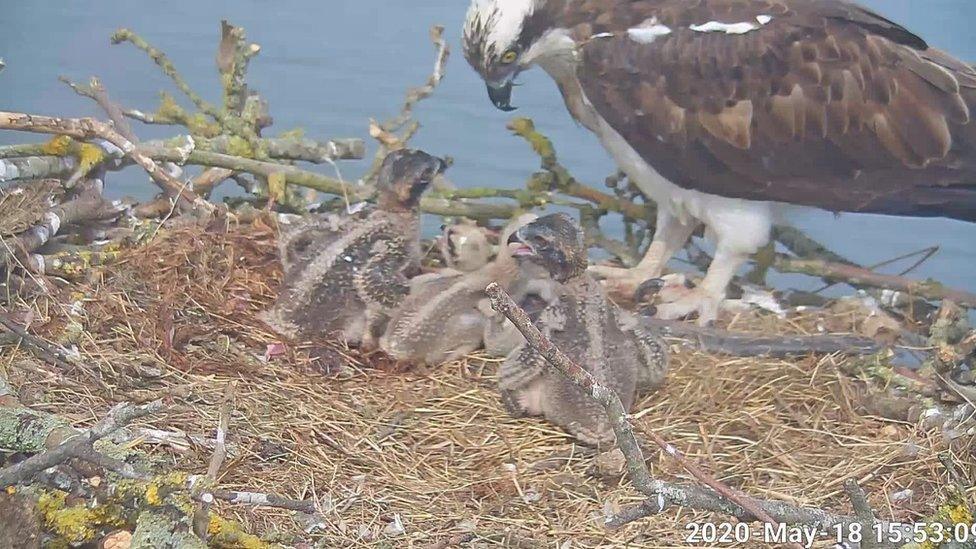
Viewers on the webcam can see chicks interact with their parents
About 45,000 people logged on the project website between 14 and 20 May - more than 10 times the total number of visitors who came to see the birds last year - with 87% of those visitors being new users.
Between 1 and 21 May, the project's Facebook page also had 2,000 new followers and about 900,000 minutes of its videos were viewed.
Most online visitors were from the UK, but the birds were also watched in Canada, Finland, Spain and the US.
Abi Mustard, from the project, said: "With more people being engaged, hopefully we could be helping to raise the awareness of how important it is to stay connected to nature."

SCHOOLS: When will children be returning?
EXERCISE: What are the guidelines on getting out?
THE R NUMBER: What it means and why it matters
AIR TRAVELLERS: The new quarantine rules
LOOK-UP TOOL: How many cases in your area?

Follow BBC East Midlands on Facebook, external, Twitter, external, or Instagram, external. Send your story ideas to eastmidsnews@bbc.co.uk.
- Published27 July 2019
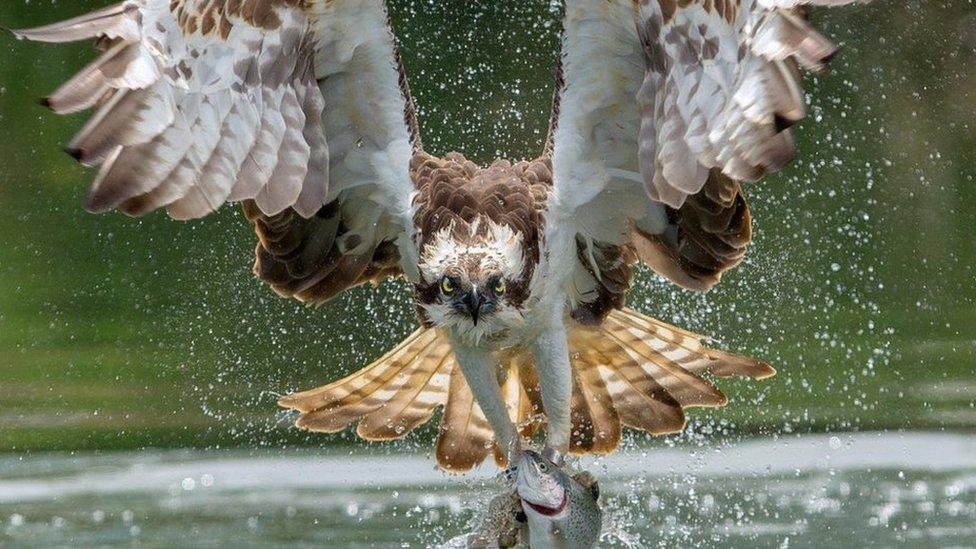
- Published22 July 2019
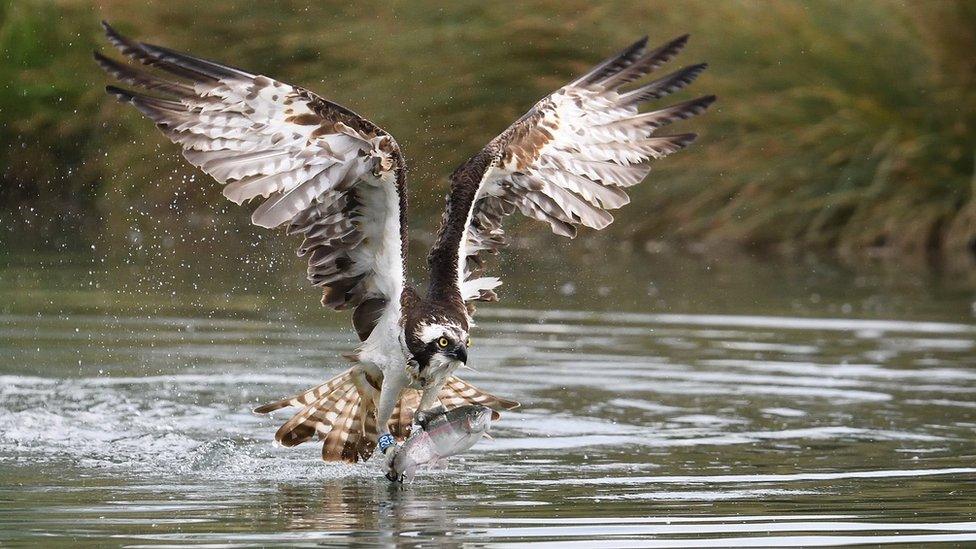
- Published6 July 2016
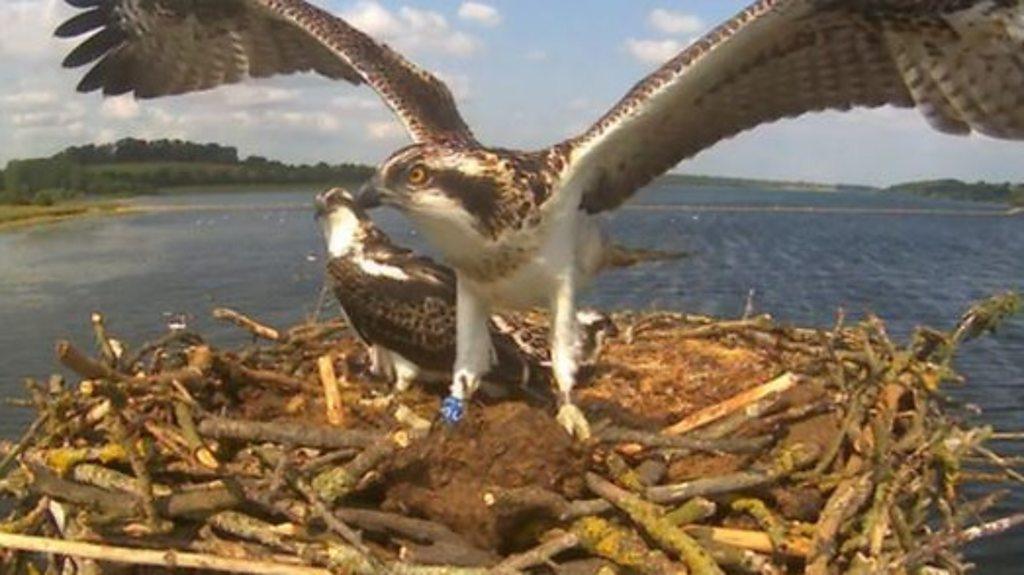
- Published6 July 2016
